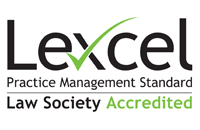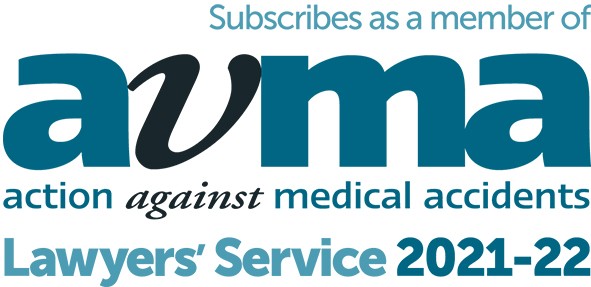Tax Planning
People from all walks of life can benefit from expert tax planning advice. Whether you are looking for ways to protect your estate for your loved ones or need advice on tax-efficient planning for a trust (or your personal portfolio), having expert advice from both a lawyer and independent financial adviser can make all the difference.
Jobling Gowler offer a comprehensive tax planning service. We provide clear, easily understood advice on difficult areas of tax law, including the legal aspects of Inheritance tax, helping you to make the most of the various available options. All our Wills, Probate & Tax Solicitors are members of STEP (Society of Trust and Estate Practitioners) and are recognised experts in the field.
Alongside our own legal expertise, we also have established relationships with a number of independent financial advisers, regulated by the Financial Services Authority, who can provide expert guidance on a wide range of financial planning issues.
The specialist team at Jobling Gowler offer a free initial tax planning consultation to discuss your particular circumstances and the legal costs involved. This will allow us to get a clear understanding of your personal circumstances and goals so we can offer tailored, personal advice. You can then make an informed decision about how to move forward before committing to work with our team.
To get in touch with our tax planning solicitors, please call us on 01625 614 250, email enquiries@jobling-gowler.co.uk or fill in the form on the contact page.
How we can help you with tax planning
Our solicitors regularly support clients from a wide range of backgrounds to help ensure they can take advantage of all of the available tax-efficient options for their estates and assets.
Inheritance Tax Planning Advice
We can advise you on various legal options for minimising your estate’s liability for inheritance tax, helping you to pass on the maximum value to your loved ones.
Our inheritance tax planning expertise includes:
• Tax-efficient Will structuring
• Making gifts (both annual gifts and ‘potentially exempt transfers’)
• Using various types of trusts
• Deeds of variation
Administration of Estates- “Post Death” Tax Planning
If you are dealing with the estate of a loved one who has passed away, there can be options for reducing the estate’s tax liability. This may be necessary where the deceased failed to put in place tax-efficient measures, or where a beneficiary wishes to mitigate their own tax liability by redirecting their share of the estate.
Our post-death tax planning expertise includes:
• Variation of the Will
• Intestacy tax-planning
• Redemption of life interest for a surviving spouse/civil partner
• Use of discretionary trusts
Tax planning FAQs
What is the UK Inheritance Tax threshold?
Every individual has a basic inheritance tax allowance of £325,000. If the value of the assets in the estate, together with the value of any taxable gifts made within seven years before the date of death exceeds this threshold, inheritance tax is payable on the portion of the estate over £325,000.
If you leave your entire estate to your spouse, civil partner, a registered charity or an amateur sports club, there will usually be no Inheritance Tax due on the estate, whatever its value.
If you leave your home to your children or grandchildren, then your estate will benefit from the additional Residence Nil Rate Band (RNRB) and the threshold for Inheritance Tax will increase to (at present) £450,000 (depending on the circumstances).
Married couples and civil partners can also share their Inheritance Tax thresholds, so that when one spouse/civil partner dies, any unused portion of their exemption can pass to the other spouse/civil partner. This can give couples a combined Inheritance Tax threshold of up to (at present) £900,000 depending on the circumstances. This threshold is going to change in April 2019 and will increase to £1,000,000 by April 2020.
Do you have to pay inheritance tax on property?
There will normally be no Inheritance Tax due if you leave your home to your spouse or civil partner. If your estate includes property which is to be given to your children or Grandchildren then, as long as the total value of your estate is less than £2,000,000, your inheritance Tax Allowance will rise up to (at present) £450,000.
The Residence Nil Rate Band (RNRB) is scheduled to increase to £175,000 in the tax year 2020/2021. This will in turn mean that a couple with a property with a value of up to £350,000 will be able to claim the full Residence Nil Rate Band for the benefit of their estates.
How does inheritance tax work for jointly-owned property?
This will depend on whether you own the property as ‘joint tenants’ or ‘tenants in common’ and whether you are married / in a civil partnership or not. Joint tenants own a whole property together, while tenants in common each own a distinct share of the property (which might mean each tenant owns 50% of the property in their own right or they may own unequal shares).
If you own a property as joint tenants, you will automatically inherit the other person’s share when they die and if they were your spouse or civil partner, there will normally be no inheritance due in respect of their interest in the property. there will normally be no inheritance tax due.
If you own as tenants in common, each owner will need to specify in their Will who they want their share to pass to. If this is not done, who inherits the share will be based on the standard rules of intestacy, which favour spouses/civil partners, then children of the deceased, followed by other close relatives.
Depending on who inherits and how much the property is worth, there could be Inheritance Tax liability.
When do you pay inheritance tax?
Any Inheritance tax due on an estate should be paid by the end of the sixth month after the person to whom the estate belonged passed away. If the tax is not paid by then, interest will be charged.
The responsibility for having the estate valued and ensuring the correct Inheritance Tax is paid lies with whoever is handling probate for the estate (either the Executor if there is a Will or the Administrator if there is no Will).
How much money can you gift tax-free in the UK?
You can give up to £3,000 a year in gifts of cash or assets without any implications for the Inheritance Tax due on your estate when you pass away.
Any gift above this £3,000 annual allowance may still be counted as part of your estate for Inheritance Tax purposes if you pass away within 7 years of the gift being made.
You can also give as many small gifts as you like (up to a value of £250) to anyone who has not already received a gift as part of your £3,000 annual exception. These small gifts will not be considered part of your estate for Inheritance Tax purposes.
Wedding gifts (including cash) are generally exempt from Inheritance Tax if they are worth less than £1,000. If you are making a wedding gift to your child, the tax-exempt threshold increases to £5,000, while for a grandchild or great-grandchild it is £2,500.
You can make gifts out of surplus income. HMRC may require you to show a pattern of giving and will want full details of your income and expenditure for the relevant years in which the gifts have been made.
You can also make gifts to support an elderly relative or a child under 18.
Gifts to charities are also exempt from Inheritance Tax, as are gifts to political parties under certain conditions.
Why choose Jobling Gowler for tax planning advice?
All our Wills, Probate & Tax Solicitors are members of STEP (Society of Trust and Estate Practitioners) and are recognised experts in the field. We offer a friendly, approachable and professional service, aimed at making it as simple as possible to for you take advantage of all the tax planning opportunities available to you.
We have extensive experience advising people on tax planning for everything from straightforward estates to the most complicated and high-value estates. We have particular expertise in supporting vulnerable and elderly clients.
Jobling Gowler is Lexcel accredited by the Law Society for the quality of our client care and practice management. We are regulated by the Solicitors Regulation Authority (SRA).
Speak to our team about tax planning today
For expert tax planning advice, please call now on 01625 614 250, email enquiries@jobling-gowler.co.uk or fill in the form on the contact page.










